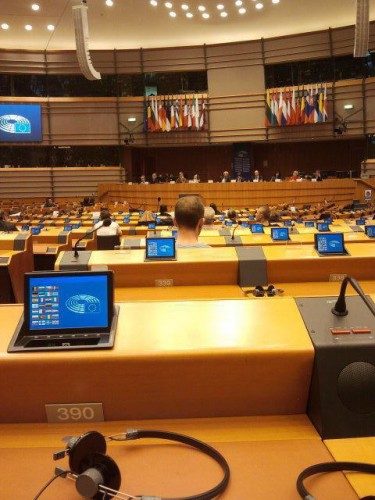Every year, on 9 May, is the celebration of ´Europe Day´, but what exactly is Europe? Europe is nowadays mostly synonymous with the term European Union. But since Europe is a concept as well a continent, its definition is not always clear.
The borders of the European Union have shifted considerably since its establishment as the European Coal and Steel Community in 1950. Starting with six countries, the territory of the EU includes now 28 independent states, with a number of potential member states on the waiting list. When we are looking at the concept of Europe through the lens of the EU the outline of the concept of Europe seems pretty clear; from Ireland and the United Kingdom in the west to Cyprus in the east.
But what about the countries that are not part of the EU, like, for example, Switzerland? This state finds itself surrounded by countries of the EU, yet does not fit into the concept of Europe when it is synonymous with the EU. Despite the fact Switzerland is not a EU member state, the country is regarded as part of Europe in general.
If the EU as definition for the concept and continent of Europe is not complete, what it is? Is it about a mutual feeling? Or common history and cultural and linguistic links? And how far can we stretch the notion of Europe? Can Ukraine be considered as Europe. And how about Turkey?
With the definition of Europe as a continent, another problem rises. Islands as Malta and Cyprus, but also the UK, are not attached to the mainland, yet they are part of Europe and the European Union. When looking only at the mainland of Europe, one can see that there is not a clear east border. Europe and Eurasia/Central Asia are connected. This is also seen in the application of Turkey to become member of the EU. The east part of the country is linked to the Middle East and if accepted the border of the EU and also Europe will extend far to the east.
The boundaries of Europe are still a matter of debate and unlikely to be defined definitive anytime soon. This means that the definition of the continent Europe and the concept Europe will remain an issue of discussion for the future. Potential applications of eastern and southern European countries for a EU member status can maybe serve as an indicator of who feel themselves European and how far the EU is willing to expand to create a big Europe.
Despite the discussions of the definition of Europe, Europe is at least for now considered a symbol of unity, freedom and democracy.

